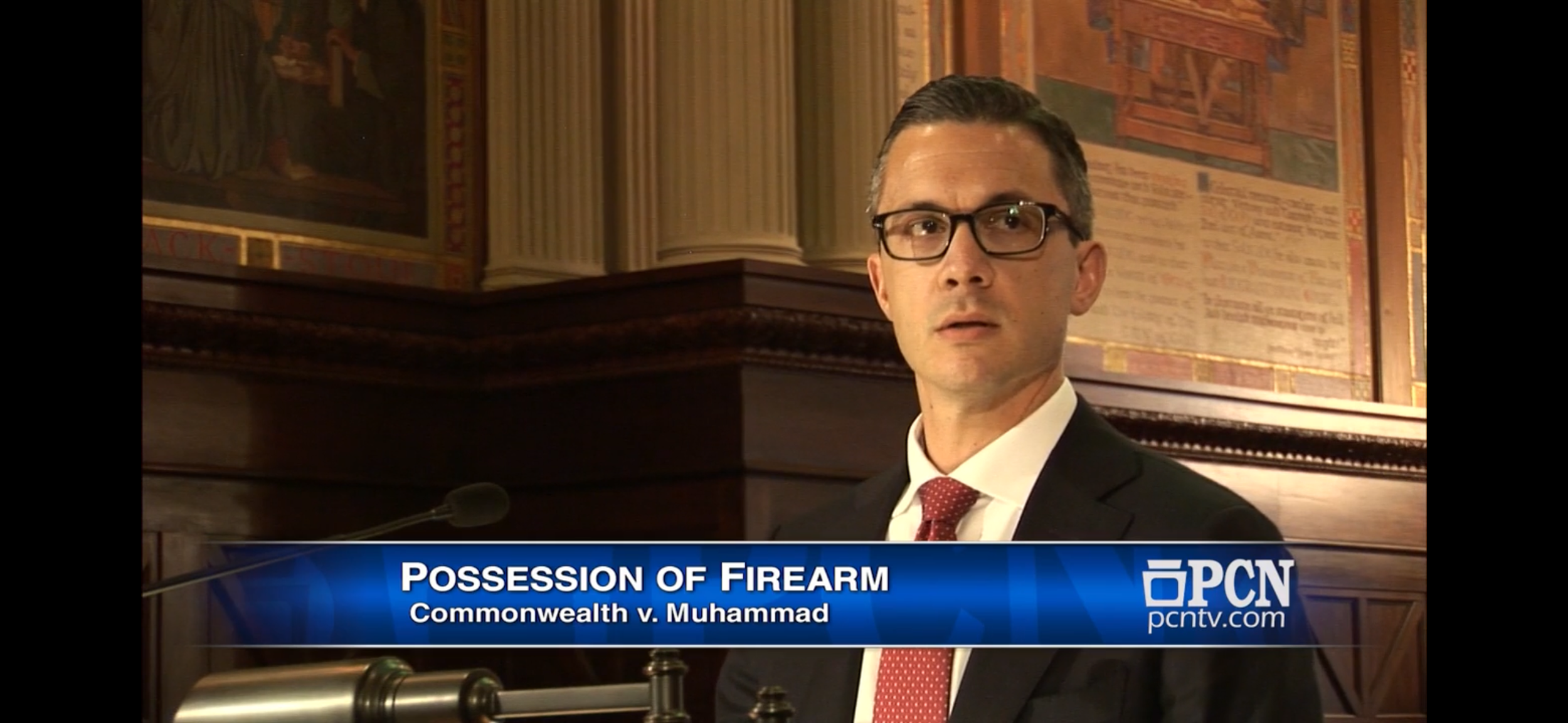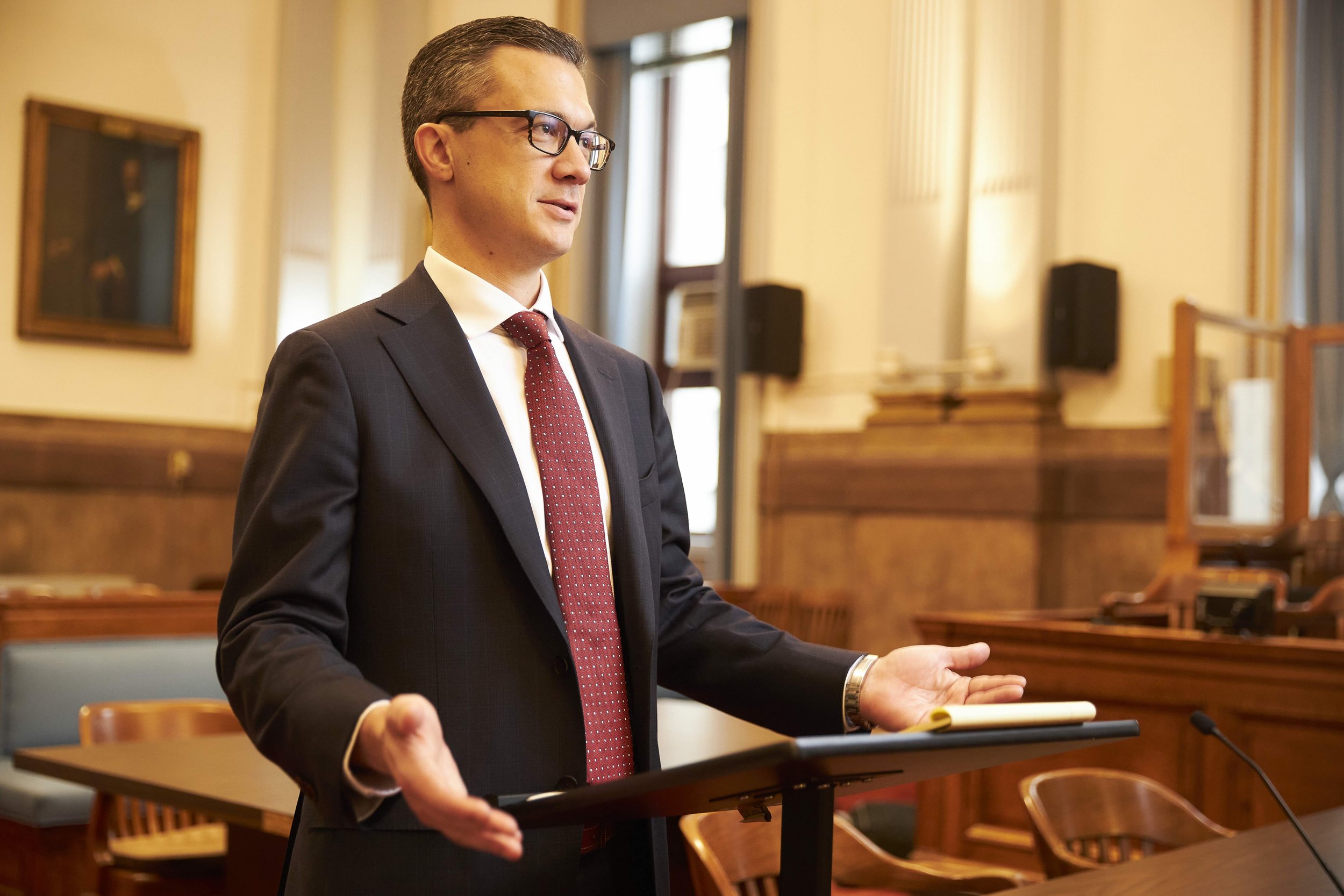
Philadelphia Criminal Defense Blog
Pennsylvania Superior Court Affirms Suppression of Cell Phone Evidence in Drug Case Because Police Looked at Phone Screen Without Warrant
Philadelphia Criminal Defense Lawyer Zak T. Goldstein, Esquire
The Pennsylvania Superior Court has decided the case of Commonwealth v. Carter, holding that the trial court properly suppressed a cell phone where the police looked at the cell phone’s screen during the execution of a search warrant for drugs without getting a warrant to look at the cell phone itself.
The Facts of the Case
The defendant was under investigation by the Lycoming County Narcotics Enforcement Unit (“LCNEU”) for alleged crack cocaine sales. The officers allegedly conducted several controlled buys in June, July, and November 2023. The controlled buys involved using confidential informants to purchase drugs near the defendant’s residence in Williamsport, PA. Based on the information obtained from these controlled buys, the officers obtained search warrants for his home.
During the execution of one of the search warrants, the officers claimed that they saw the defendant’s cell phone screen light up. It apparently displayed a partial text message from a woman allegedly involved in some of the drug deals. An officer photographed the message and later used it to obtain another warrant to seize and search the phone itself. The initial warrant did not authorize searching or seizing the phone. The defendant was then charged with drug delivery offenses such as possession with the intent to deliver.
The Motion to Suppress
The defense attorney filed a motion to suppress the cell phone evidence, arguing that police conducted an unlawful search by looking at and photographing the phone’s screen without first obtaining a search warrant. The trial court agreed, finding that even a “small” intrusion into a cell phone, such as reading a text message notification, counts as a search under both Pennsylvania and U.S. Supreme Court law.
The court also doubted the police explanation, suggesting that the officers were not totally credible. The court was skeptical that the phone screen “lit up on its own” to reveal a six-hour-old message, concluding it was more likely that officers manipulated the phone given the age of the message. Because the phone evidence was unlawfully obtained in that police likely manipulated the phone before obtaining a warrant, the court ruled that the evidence from the phone was “fruit of the poisonous tree” and had to be suppressed. The Commonwealth appealed.
The Superior Court’s Ruling
On appeal, the Commonwealth argued that simply observing the phone screen fell within the “plain view” exception to the warrant requirement. The police had the right to be in the house based on the first warrant, so there was no reason they could not look at the phone given that the phone was in plain view. The Superior Court rejected this argument. Relying on Riley v. California and Commonwealth v. Fulton, the court reaffirmed that cell phones are constitutionally protected spaces. Even minimal intrusions, like reading a text message, require a warrant.
The Superior Court also concluded that the trial court acted within its authority to question the credibility of the assertions contained in the affidavit and concluded that the “plain view” doctrine did not apply. As a result, the Court affirmed the suppression of the defendant’s phone and all evidence derived from it.
The Takeaway
This decision highlights how strongly Pennsylvania courts protect privacy interests in cell phones. Police cannot sidestep the warrant requirement by claiming that a text message or notification appeared in plain view. If officers want to read or use information from a phone, they must get a warrant.
For defendants, this ruling is a reminder that evidence obtained through unconstitutional searches may be excluded, which may significantly weaken the prosecution’s case. For anyone facing drug charges in Pennsylvania, especially cases involving phones, texts, or social media, it is critical to have a defense lawyer who understands the latest case law and knows how to fight unlawful searches.
Facing criminal charges or appealing a criminal case in Pennsylvania?
Goldstein Mehta LLC Defense Attorneys
If you are facing criminal charges or under investigation by the police, we can help. We have successfully defended thousands of clients against criminal charges in courts throughout Pennsylvania and New Jersey. We have successfully obtained full acquittals and dismissals in cases involving charges such as Conspiracy, Aggravated Assault, Rape, Violations of the Uniform Firearms Act, and First-Degree Murder. We have also won criminal appeals and PCRAs in state and federal court, including the successful direct appeal of a first-degree murder conviction and the exoneration of a client who spent 33 years in prison for a murder he did not commit. Our award-winning Philadelphia criminal defense lawyers offer a free criminal defense strategy session to any potential client. Call 267-225-2545 to speak with an experienced and understanding defense attorney today.
PA Superior Court: Shining Flashlight Into Small Opening of Shoebox Violates Plain View Doctrine
Pennsylvania Superior Court Reverses Conviction Based on Warrantless Shoebox Search
Philadelphia Criminal Defense Lawyer Zak T. Goldstein, Esquire
In Commonwealth v. Herlth, 2025 PA Super 73, the Pennsylvania Superior Court reversed a drug conviction after concluding that a warrantless search of a shoebox violated the Fourth Amendment to the United States Constitution and Article I, Section 8 of the Pennsylvania Constitution. The ruling serves as a clear reaffirmation of privacy rights in closed containers within the home—even during police responses to medical emergencies.
The Facts of Herlth
The case arose out of an incident which occurred on August 31, 2020, when Pennsylvania State Police responded to a report of a drug overdose at a residence in Red Lion, Pennsylvania. EMS personnel were already inside administering care to the defendant when a state police trooper entered the house. The trooper was not there to provide medical assistance, but he wanted to ensure the safety of the EMS responders and “see what [the patient] overdosed on to possibly make an investigation further, anything that’s in plain view that we can see.”
While standing in a small living room near the defendant’s feet, the trooper noticed a closed shoebox next to the defendant’s leg. He then shined his flashlight into a manufacturer’s hole in the box and saw what appeared to be “scramble” capsules which were commonly used to package fentanyl and other drugs. Believing that the defendant had overdosed on these capsules, the trooper opened the box and seized a bag containing 117 capsules.
The defendant was arrested and charged with possession with the intent to deliver. He filed a motion to suppress the evidence, arguing that the trooper conducted an illegal warrantless search of his house and the shoebox. The trial court denied the motion to suppress and allowed the introduction of the evidence at trial. The court reasoned that the drugs were in plain view because the trooper was able to find them without actually opening the shoebox even though the trooper could not see them without using his flashlight. The court found the defendant guilty of PWID and sentenced him to seven to fourteen years’ incarceration. He appealed.
The Legal Issue: Was the Search Justified by the Plain View Doctrine?
On appeal, the defendant challenged the warrantless search and seizure, arguing that the use of a flashlight to examine the interior of a closed shoebox exceeded the scope of any permissible exception to the warrant requirement.
The Superior Court agreed. The Court explained the three essential requirements for the plain view doctrine to apply:
The officer must lawfully be in the vantage point from which the object is viewed;
The incriminating nature of the object must be immediately apparent (i.e., there must be probable cause);
The officer must have lawful access to the object.
While the Court acknowledged that the defendant lawfully entered the home under the “community caretaking” doctrine to ensure EMS safety, it held that the Commonwealth failed to satisfy the other two prongs of the test.
Specifically, the shoebox was a closed, opaque container, not an item whose incriminating character was immediately apparent. There was no way for the trooper to observe the contents without manipulating the container by shining a flashlight into a manufacturer’s hole—an investigative act which itself constituted a search.
Reliance on Key Precedent
The Court drew heavily on Commonwealth v. Graham, 721 A.2d 1075 (Pa. 1998), and Commonwealth v. Norris, 446 A.2d 246 (Pa. 1982). In both cases, the Pennsylvania courts held that police may not use the plain view doctrine to justify extending a search into containers or concealed areas unless the object is already visible and the officer has lawful access.
In Graham, for example, the officer shined a flashlight into the defendant’s pocket after a Terry frisk had concluded, ultimately discovering contraband. The Supreme Court found that flashlight use in that context transformed an otherwise valid frisk into an unlawful search. Likewise, in Norris, officers were justified in seizing a knife on a nightstand but were not permitted to search under a mattress for a hidden firearm after the emergency had ended.
Why the Flashlight Made the Search Unlawful
Although courts have upheld flashlight use when illuminating objects that would otherwise be visible during the day, that principle did not apply here. The Superior Court emphasized that the scramble pills inside the shoebox were not in plain view; even in full daylight, they would have remained hidden inside the closed box. The use of a flashlight to peer into the hole was not passive illumination—it was a directed, investigative act taken without a warrant or exigent justification.
Outcome
The Superior Court reversed the denial of suppression, vacated the judgment of sentence, and remanded the case for further proceedings. One judge dissented, so the Commonwealth may file for review by the entire court.
Key Takeaways
The case underscores the robust privacy protections for closed containers inside a residence.
Police officers responding to overdoses or other emergencies must avoid converting caretaking roles into investigative searches unless they obtain a warrant or meet one of the narrow exceptions.
The plain view doctrine does not permit flashlight-aided searches of opaque containers without probable cause and lawful access.
This decision reinforces a critical constitutional limit on police authority and serves as a cautionary tale: even in good-faith responses to public health emergencies, law enforcement must respect established privacy rights.
Facing criminal charges or appealing a criminal case in Pennsylvania?
Goldstein Mehta LLC Criminal Defense
If you are facing criminal charges or under investigation by the police, we can help. We have successfully defended thousands of clients against criminal charges in courts throughout Pennsylvania and New Jersey. We have successfully obtained full acquittals and dismissals in cases involving charges such as Conspiracy, Aggravated Assault, Rape, Violations of the Uniform Firearms Act, and First-Degree Murder. We have also won criminal appeals and PCRAs in state and federal court, including the successful direct appeal of a first-degree murder conviction and the exoneration of a client who spent 33 years in prison for a murder he did not commit. Our award-winning Philadelphia criminal defense lawyers offer a free criminal defense strategy session to any potential client. Call 267-225-2545 to speak with an experienced and understanding defense attorney today.
Smith v. Arizona: United States Supreme Court Holds Expert May Not Testify to Absent Lab Analyst’s Testing Results if Analyst Unavailable
Philadelphia Criminal Defense Lawyer Zak T. Goldstein, Esquire
The Supreme Court of the United States has decided the case of Smith v. Arizona. In Smith, the Court held that when an expert conveys an absent lab analyst’s statements to support their opinion, and those statements must be true in order for the opinion to be accurate, the statements are admitted as evidence for their truth. If the statements are also testimonial, then their admission is barred by the Confrontation Clause. However, the Court did not decide whether the statements in this case were definitively testimonial, instead remanding that issue to the state court for further consideration.
The Facts in Smith v. Arizona
In December 2019, law enforcement officers in Yuma County, Arizona, arrested Jason Smith inside a shed during the execution of a search warrant. The officers discovered a large quantity of suspected drugs and drug-related items, leading to Smith being charged with multiple drug offenses, including possession of methamphetamine, marijuana, and cannabis for sale, and possession of drug paraphernalia. Smith pleaded not guilty, and the case proceeded to trial.
During trial preparations, the State sent the seized items to the Department of Public Safety's crime lab for analysis, identifying Smith as the suspect and providing details of his charges. Analyst Elizabeth Rast conducted the tests and documented her findings in detailed notes and a signed report. Her report concluded that the items contained usable quantities of methamphetamine, marijuana, and cannabis.
Initially, the State intended for Rast to testify at Smith’s trial. However, Rast left the lab before the trial for unspecified reasons. Instead, the State called Greggory Longoni as a substitute expert to testify based on Rast’s records, although Longoni did not conduct any independent testing. Longoni’s testimony, which relied on Rast’s records, led to Smith’s conviction.
Smith appealed, arguing that Longoni’s testimony violated his Confrontation Clause rights because he was unable to cross-examine Rast, whose statements formed the basis of Longoni’s opinion. The Arizona State Court of Appeals affirmed Smith’s conviction, reasoning that an expert could testify to the substance of a non-testifying expert’s analysis if it formed the basis of their opinion.
Supreme Court's Analysis
The Supreme Court rejected the Arizona Court of Appeals' reasoning, focusing on whether Rast’s statements were introduced for their truth. The Court stated that if Rast’s statements were used to establish that the events documented in her report actually occurred, then they were admitted for their truth. Furthermore, the Court assumed that since the testing and records were made for evidentiary purposes, Rast’s statements were testimonial.
The Court emphasized that if an expert’s testimony conveys an out-of-court statement to support their opinion, and the statement supports the opinion only if true, then the statement is admitted for its truth. The inability to cross-examine the analyst themselves on the reliability of the testing and the expert’s reliance on that underlying testing leaves the jury with an unchallenged assumption of truth and the defense with no opportunity to challenge that assumption. This is exactly what the Confrontation Clause forbids.
The Takeaway
Goldstein Mehta LLC Criminal Lawyers
This is an important decision. Under prior precedent, the prosecution had been able to use substitute experts to testify to what other expert witnesses did. That procedure, however, leaves the defense completely unable to challenge the credibility of the actual people who did the testing. This decision reinforces the defendant's right to confront and cross-examine witnesses against them, ensuring the integrity and fairness of the judicial process.
Facing criminal charges or appealing a criminal case?
If you are facing criminal charges or under investigation by the police, we can help. We have successfully defended thousands of clients against criminal charges in courts throughout Pennsylvania and New Jersey. We have successfully obtained full acquittals and dismissals in cases involving charges such as Conspiracy, Aggravated Assault, Rape, Violations of the Uniform Firearms Act, and First-Degree Murder. We have also won criminal appeals and PCRAs in state and federal court, including the successful direct appeal of a first-degree murder conviction and the exoneration of a client who spent 33 years in prison for a murder he did not commit. Our award-winning Philadelphia criminal defense lawyers offer a free criminal defense strategy session to any potential client. Call 267-225-2545 to speak with an experienced and understanding defense attorney today.
PA Supreme Court: Speedy Trial Rule (Rule 600) Runs From Filing of Second Complaint When Commonwealth Acts Diligently
Criminal Defense Attorney Zak T. Goldstein, Esquire
The Pennsylvania Supreme Court has decided the case of Commonwealth v. Womack, holding that the speedy trial rule (Pa.R.Crim.P. 600) runs from the filing of a second related complaint as long as the Commonwealth acted diligently in the prosecution of the case.
The Facts of Womack
On October 6, 2017, Pennsylvania State Trooper Andrew Corl led a search at Tyler and Bobbi Martin's home in Huntingdon County. The search uncovered a large sum of money, drugs, and stolen firearms linked to Marcus Womack. Womack was immediately arrested and charged with nine offenses, including possession with intent to deliver (PWID), conspiracy to commit PWID, and possession of a firearm by a person prohibited.
Following his arrest, further investigation revealed Womack's involvement in a larger drug trafficking operation extending to Philadelphia and Pittsburgh. This led to a second criminal complaint with additional charges based on new evidence.
The Office of the Attorney General (OAG) took over the case. It conducted a grand jury investigation and ultimately filed the second, more extensive complaint against Womack involving additional charges.
The Rule 600 Motion
Womack eventually moved to dismiss the case, arguing that the Commonwealth violated his rights by not bringing him to trial within 365 days as required by Rule 600. Womack argued that the time for speedy trial purposes should start on the date the Commonwealth filed the first complaint. The Commonwealth responded that the time did not begin to run until the filing of the second complaint because the Commonwealth acted with due diligence during the prosecution of the case. The trial court denied the motion, concluding that the second complaint was based on new evidence legitimately uncovered during the subsequent investigation. It did not stem from an attempt to violate Rule 600 or Womack’s speedy trial rights.
The Superior Court affirmed the trial court’s decision, opining that the prosecution exercised due diligence in the period between the two complaints. The defendant appealed further, and the Pennsylvania Supreme Court accepted the appeal. Ultimately, the Supreme Court of Pennsylvania agreed, stating that the filing of the second complaint was necessitated by factors beyond the prosecution's control and that the grand jury investigation was a necessary and diligent step. In other words, the police properly arrested Womack when they conducted the initial search. They were not required to wait to bring charges while they investigated further. And once they arrested him, they realized that additional investigation was necessary, so it was not unreasonable for the Commonwealth to later file a second complaint once it uncovered additional evidence of criminal activity. As the Commonwealth never acted with the purpose of delaying trial and investigated the case in a diligent manner, the time ran from the filing of the second complaint, giving the Commonwealth more time to prosecute the defendant.
The key issue in these cases is due diligence. Where the prosecution acts with due diligence, the time runs from the second complaint and the prosecution will have more time to bring the defendant to trial. Where the prosecution acts without due diligence (such as in letting a case get dismissed because it failed to make sure that witnesses showed up for court), the time will run from the first complaint and a speedy trial motion may be successful. In this case, all of the courts involved found that the prosecution acted with due diligence. The prosecution's efforts to investigate further after the first complaint demonstrated due diligence. The grand jury process was crucial to uncovering the full extent of Womack's criminal activities. Therefore, the Supreme Court ruled that the timeline for Rule 600 starts from the filing of the second complaint if it arises from new evidence and the prosecution acts diligently.
These cases are generally fact specific. In this case, the prosecution did not really do anything unfair to intentionally or even negligently cause delays. The first arrest led to a broader investigation that uncovered evidence that supported additional charges, so it was not unreasonable for the Commonwealth to file a second complaint. The Commonwealth acted with due diligence, so it had the benefit of Rule 600’s deadline being calculated from the date the second complaint was filed rather than the first.
Facing criminal charges or appealing a criminal case in Pennsylvania?
Philadelphia Criminal Defense Lawyer Zak T. Goldstein, Esquire
If you are facing criminal charges or under investigation by the police, we can help. We have successfully defended thousands of clients against criminal charges in courts throughout Pennsylvania and New Jersey. We have successfully obtained full acquittals and dismissals in cases involving charges such as Conspiracy, Aggravated Assault, Rape, Violations of the Uniform Firearms Act, and First-Degree Murder. We have also won criminal appeals and PCRAs in state and federal court, including the successful direct appeal of a first-degree murder conviction and the exoneration of a client who spent 33 years in prison for a murder he did not commit. Our award-winning Philadelphia criminal defense lawyers offer a free criminal defense strategy session to any potential client. Call 267-225-2545 to speak with an experienced and understanding defense attorney today.











